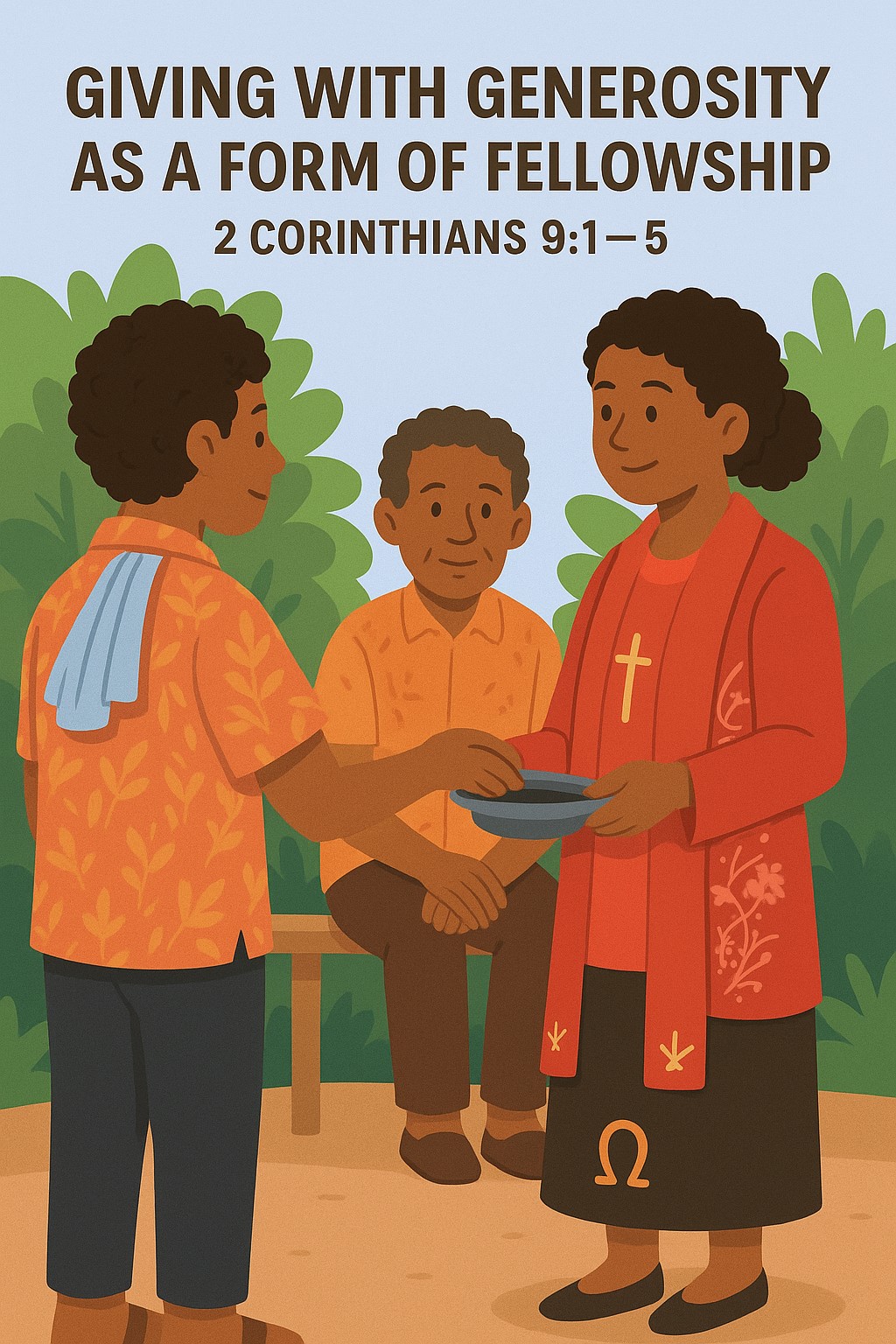Introduction
Beloved brothers and sisters in Christ, today we worship on August 17. Many around us this morning are attending flag ceremonies to commemorate the nation’s independence. Then some might ask: which is more important, worship or the ceremony?
The answer is this: the ceremony is an outward sign, while worship is the spirit that gives meaning to that sign. The red-and-white flag is only cloth, but it is our hearts remembering the sacrifice of the heroes that give it meaning. In the same way, the ceremony is only a symbol, but worship helps us to see that independence is God’s gift. So, we do not pit the two against each other, but we place worship at the center, because it gives true meaning to all national celebrations.
Today, God’s Word from 2 Corinthians 9:1–5 teaches us something similar: how something outward—giving offerings—finds its deepest meaning in the spirit of love and fellowship.
Brothers and sisters, today our nation celebrates independence with ceremonies, while we celebrate it with worship. Both are important, but worship is what gives the deepest meaning to all those celebrations.
Therefore, let us give with generosity. Do not wait until we have abundance before giving. But give sincerely from what we have, for what God sees is our hearts. In this way, we truly become one in spirit, building an altar of thanksgiving, and making our offerings a living act of worship to God.
Body
Let us now enter the context of our reading. Paul writes to the church in Corinth about the collection of aid for the church in Jerusalem, which was experiencing hardship.
The Corinthians had already promised a year earlier that they would participate in giving (v. 2). Paul even boasted about them to the other churches in Macedonia.
The Macedonian churches themselves were actually poor, but they gave generously, even beyond their ability (cf. 2 Cor. 8:1–5). They became a model of faith.
Paul was concerned that when he came with some Macedonians, the Corinthians might not be ready. That would be shameful, both for Corinth and for Paul who had praised them (v. 4).
So Paul sent Titus and other brothers ahead to help them prepare the offering, so that their giving would not be out of compulsion, but from willingness of heart (v. 5).
It is clear then, Paul was not only speaking about money, but about the heart. Offerings are a sign of love and fellowship in the church.
What can we learn here? First, offerings are part of worship. Giving is not merely an obligation, but an expression of gratitude to God. Second, offerings must spring from generosity. The size of the gift is not the standard—the heart’s willingness is. God looks at the heart, not the amount. Third, offerings are a sign of fellowship. The churches in Jerusalem, Corinth, and Macedonia were in different places and circumstances, yet they were one in Christ. This is the “altar of thanksgiving” built together.
Conclusion
Brothers and sisters, our village congregation knows well what it means to give out of scarcity. Not everyone has much money. Some live from their gardens, from sago, from selling fish, or from a small harvest. But it is precisely here that this Word comes alive.
Like the Macedonian churches, we are taught that giving is not about the size of the gift, but the willingness of the heart. Some may only bring a bundle of vegetables, some may offer produce from the garden, some may give their strength to clean the church. All of these are equally precious before God, because they spring from a sincere heart.
This generosity is what enables a village congregation to endure: supporting one another, sharing with one another, praying for one another. In this way, we truly build an altar of thanksgiving together in our church.
So let us give with generosity. Do not wait until we have abundance before giving. But give sincerely from what we have, for what God sees is our hearts. In this way, we truly become one in spirit, building an altar of thanksgiving, and making our offerings a living act of worship to God.
Amen.
 English
English
 Indonesia
Indonesia



Add New Comment